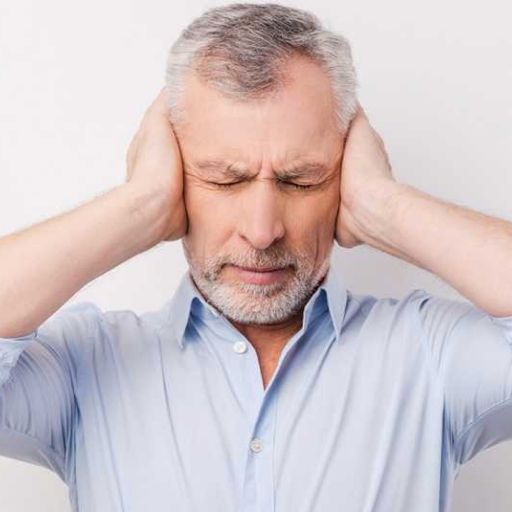Weighing the Pros and Cons: Using a Personal Loan to Tackle Credit Card Debt.
Insuring Your Peace of Mind: An Overview of Common Types of Insurance.
What do you Know About Credit Scores!
What You Need to Know About Secured Credit Card Deposits!
What to do When Your Auto Insurance Claim is Denied?
About Balance Transfer Basics!
Mental health is like the Wi-Fi of our well-being—crucial but often overlooked until it starts acting up. Early signs of mental illness can be as sneaky as a cat burglar, creeping up unnoticed until they start causing real chaos.
Spotting these red flags early is key to getting the help you need before things spiral out of control.
Major mental illnesses such as schizophrenia or bipolar disorder rarely appear “out of the blue.” Most often, family, friends, teachers, or individuals themselves begin to recognize small changes or a feeling that “something is not quite right” about their thinking, feelings, or behavior before an illness appears in its full-blown form.
Learning about developing symptoms, or early warning signs, and taking action can help ensure prompt treatment.
Early intervention can help reduce the severity of an illness and interruptions in quality of life and functions. It may even be possible to delay or prevent a major mental illness altogether.
Let’s dive into the telltale signs and how to spot them in yourself or others.
Unpredictable mood swings
Ever notice someone who’s usually the life of the party suddenly morph into a recluse or flip from sunshine to stormy in no time?
That’s a classic mood shift. If someone who’s normally upbeat turns into a grumpy hermit or gets overly negative, it might be more than just a bad day—it could be a sign of depression or anxiety.
For yourself, these mood swings can feel like riding a rollercoaster you didn’t sign up for.
You might be drenched in sadness or emptiness for days on end or find yourself on edge without any clear reason. If these feelings stick around and refuse to budge, it might be time to chat with a professional.

Social withdrawal
If you find yourself or someone else becoming a social hermit, it’s worth paying attention. Everyone needs a little alone time now and then, but if someone starts dodging friends, family, or activities they once loved; it might be a sign of mental illness, like depression or anxiety.
For yourself, notice if you’re spending more time alone and avoiding social interactions without a good reason. It’s easy to convince yourself that staying in is fine, but if isolation becomes a habit, it might be time to check if depression or anxiety is behind it.
Changes in sleeping patterns
Sleep and mental health go hand in hand. Trouble falling asleep or staying asleep might be a sign of anxiety. On the flip side, sleeping too much could hint at depression. If you or someone you know is dealing with weird sleep hours, nightmares, or waking up constantly, it’s a red flag.
Keep an eye on your own sleep patterns. If you’re finding yourself wide awake all night or snoozing more than usual, it could be time to look at how your mental health might be messing with your rest. Poor sleep can make mental health issues worse, creating a tricky cycle to break.
Nutritional needs and variations in weight
A change in either your appetite or how much you weigh could be a pointer to the possible presence of a mental illness.
For instance, some eat in surplus to forget their troubles or melancholia, while others would totally abstain from food. These are likely to be found in people suffering from depression, stress, or bulimic disorders.
More than ninety percent of the population has learned to control their food intake to satisfy hunger only. Hunger is not the only reason to change patterns in such a manner.
Emotions have this sneaky magic of subverting your appetite. If that is what food cues do to you, then it may be necessary to assess the situation.

Failure to focus
Struggling to focus or make decisions can signal mental health issues like anxiety, depression, or ADHD. You might feel like your brain is in a fog or that you’re easily distracted. If getting through tasks or responsibilities is becoming a challenge, it could be tied to your mental health.
It's not normal for a person to constantly forget where they put things, their meal timings, and simple things like plans or appointments. Some people may find it difficult, and they may even neglect the need to do such things, which is adverse.
Increased sensitivity
Being mentally ill may increase people’s sensitivity to some of their daily life pressures. Some sounds, smells, or lights can seem too much to take in.
You may detect that a person, or even yourself, is being phased out by something that isn't bothersome normally. Loud places or crowded spaces may now seem unbearable.
This is common in people with anxiety, PTSD, or sensory issues. If you notice these changes in yourself, observe how often they happen. See if they interfere with your daily life.

Unexplained physical symptoms
Mental health conditions affect the body as well. Common symptoms include a headache, stomachache, or any unexplained pain that is sometimes interrelated with anxiety, depression, and stress. People often visit doctors for these symptoms and find the cause is emotional or psychological.
If you have frequent physical symptoms without a clear cause, think about whether stress or anxiety might be the reason. The same goes for others who often complain of physical issues without a medical explanation.
Substance abuse
Many people with mental health issues use alcohol or drugs to cope. This self-medication hides the problem but makes it worse. If you or someone you know is using substances more often or in larger amounts, it could signal a mental health issue.
Pay attention to whether you're using alcohol or drugs to handle tough emotions. Occasional use might seem harmless, but it can quickly turn into a harmful habit, worsening mental health over time.
Recognizing the early signs of mental illness in yourself or others is crucial for getting help before issues escalate. By paying attention to mood swings, social withdrawal, sleep patterns, and other key indicators, you can take action and seek professional support early.